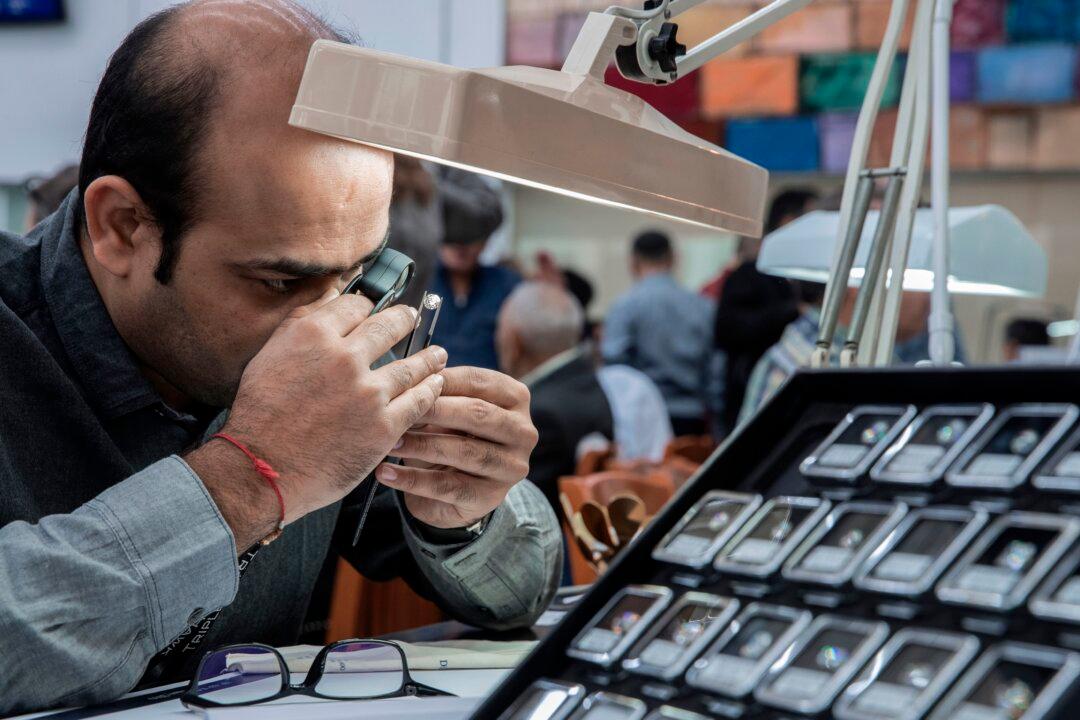TEL AVIV, Israel—Once the stone heats up, Menachem Moullem does his first cut. “Attention!” he shouts while grabbing it with tiny tweezers.
“This might look to you like a vinyl record player,” he said, pointing at a black plate. “But this round machine does about 3,000 loops a minute to heat up the gem and polish it. And—because only the hardest material on earth can polish itself—it is covered in diamond dust.”
